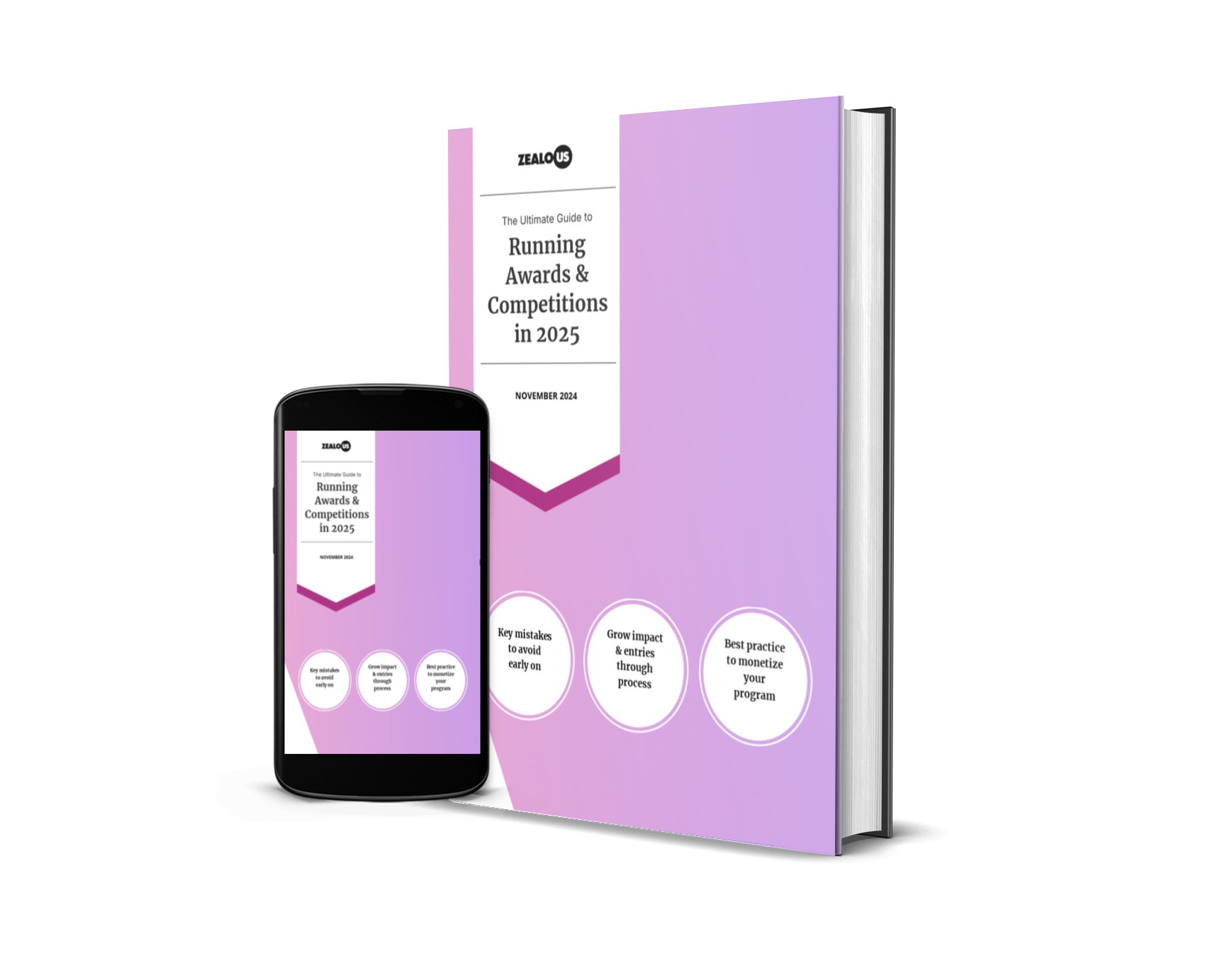Whether you’re running competitions, grants, or awards, this guide shares a decade of insights and covers the complete award management lifecycle from planning to execution. These insights aim to support you across the life-cycle of your program, no matter whether you are a veteran or starting from scratch and regardless of whether you’re using spreadsheets or a dedicated award management platform.
Please note: You can read the articles below in any order – however, if you are launching a new initiative we recommend following them one by one to increase the impact of your program.
Planning
“I ain’t Martin Luther King. I don’t need a dream.
Spike Lee
I have a plan.”
Planning is by far the best investment of time you will make. The more effort you put into planning, the less likely you will come across time-consuming issues later on in the process. e.g. ambiguous guidelines will lead you to you being swamped with questions near to the deadline.
Defining your purpose (& goals)
A clearly articulated purpose will help market your offering and encourage potential candidates to submit. It also helps to define your goals and attract partners to your initiative. Read more about defining your purpose.
Streamlining what you ask for from candidates
Knowing what candidates will need to do to submit is vital to define your process. Asking for a lot may impact your timelines and consequently the number of submissions you get. Here are our top tips on detailing the ask.
Establishing the perks
Potential candidates will only apply if they think what you have to offer is of value to them. Identifying what’s in it for successful applicants is vital to inspire candidates to submit to your open call (note – this need not be money!). Discover how to make the most with what you have.
Monetizing your callout
Every program allows you to raise money. It could be as simple as taking a submission fee or a more complex pricing strategy built to support those most in need. Explore how to make money from your open call.
Defining your selection criteria
How do you pick the winners? What happens if you are flooded with entries? How will judges know what should get a high score? These questions will inform your timeline and force you to rethink what you expect candidates to submit. Read more on what to watch out for when defining your selection criteria.
Insights like these straight to your inbox
Receive weekly tips from our founder to grow your program’s impact; regardless of what tools you use.
Setting your schedule
Timing is everything – opening your submissions at the wrong time or for too long could negatively impact the number of candidates who apply. Thinking of your dates in context is critical in ensuring a stress-free process. Find out more on what to watch out for when crafting the schedule for taking submissions.
Approaching judges & partners
Getting partners involved and securing high-level individuals to help you select winners is no easy task. But having someone recognizable on your panel is a big perk for candidates who want their work seen. Here are our top tips to appeal to judges you would like involved in your program.
Writing the perfect guidelines
Guidelines are single-handedly the most important tool available to you in making sure candidates submit what you need. Having clear and concise guidelines also guarantees potential candidates don’t swamp you with questions as your deadline approaches. Discover what to watch out for when drafting your guidelines.
Maximizing engagement
Want to engage with your communities or stakeholders? Building that into your process will allow you to increase the overall impact of your program. Explore how to integrate engagement at every step of your open call.
Choosing your process
With everything you’ve learned whilst planning your open call, now is the time to choose your process. What tools should you use? How will they all fit together? How can you save time at every step? Read up on what to consider when choosing your process.
Building trust
Building brand recognition and trust with potential candidates is essential to your continued success, not just for your program but for your organization as a whole. Small things like imagery, copy and support go a long way in ensuring people remember you. Discover how to leverage your brand and build trust with potential candidates.
Executing
“Execution is everything”
Jeff Bridges
With proper planning, execution should be a breeze. Now is the time to let as many people know about your program and catch any issues, so you are prepared for the inevitable last-minute rush to submit.
Marketing your open call (on a shoestring budget)
You could be offering the most incredible opportunity for candidates, but no one will submit if the right people don’t know about it. With the planning done, marketing should be your primary objective when submissions open. Here are a few marketing strategies to increase exposure to your call out.
Effectively managing incoming submissions
Although planning is essential, it is impossible to foresee every issue candidates will come across. Fielding questions early, creating transparency around the process and being available, will benefit you on the lead-up to submissions closing and beyond. Here are a few tricks to effectively manage candidates and save time doing so.
Beyond
“Legacy above finances; artistry above fame.”
Jimmy Chamberlin
Your program doesn’t end once you have selected the winning candidates. We know this is just the beginning of making your project come to life. Once the program is over, measuring your impact and leaving a positive legacy to build on is crucial for any future projects you run.
Measuring what matters
Learn how to track whether you’re actually changing participants’ lives without turning into a data scientist. Discover light-touch methods that give you stories and statistics funders care about – while keeping measurement invisible to participants.
Learn and repeat (debrief)
Success is incremental. The most challenging moments you have faced during your program are also the most valuable lessons. Effectively debriefing once submissions close allows you to capture knowledge for your next initiative. Read our top tips on what to look out for when debriefing and sowing the seeds for future projects.
Coming soon
We can help!
Zealous makes running your programmes easier
But we’re not alone in the space – here are 8 others you may wish to consider (even if we would prefer you choose us!).
Want us to write more content like this? Give it a like
Share

Guy Armitage is the founder of Zealous and author of “Everyone is Creative“. He is on a mission to amplify the world’s creative potential.









